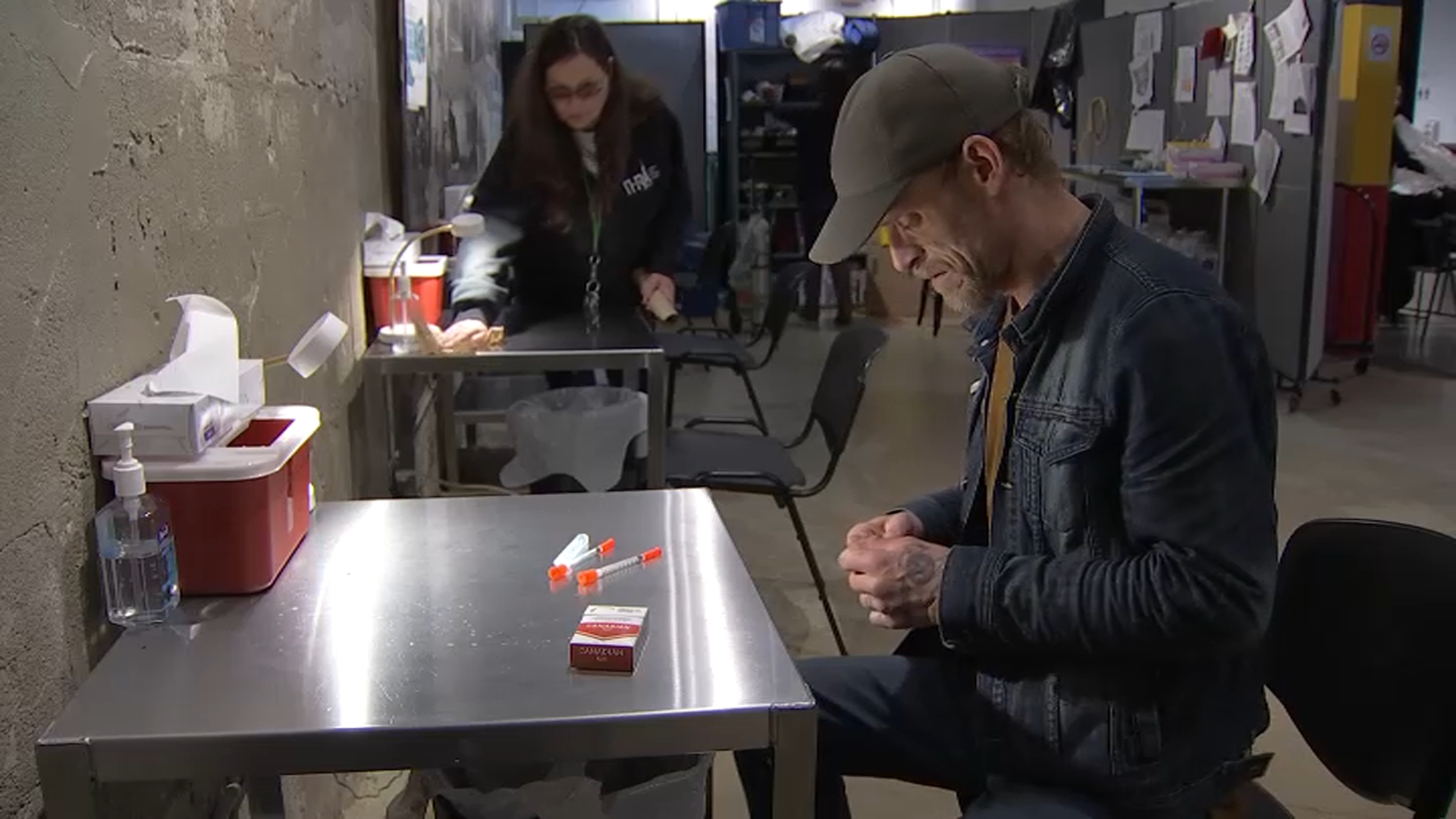What to Know
- A federal judge entered a final order Tuesday that allows a nonprofit to open the nation's first supervised injection site for opioid users in Philadelphia.
- Philadelphia Councilman Mark Squilla told NBC10 they plan to open the site at Broad and McKean streets in South Philadelphia.
- U.S. Attorney William McSwain, who opposes the site, says he would challenge the judge's ruling to the Third Circuit of Appeals
Operators of the nonprofit planning to open a heroin injection site in South Philadelphia next week announced plans for the facility, noting "three to four people die of overdose every day in Philadelphia and with numbers like these, we are compelled to act."
A federal judge in Philadelphia issued a final ruling Tuesday that allows the nonprofit Safehouse to open the nation's first supervised injection site, which supporters believe will help combat the city's deadly opioid epidemic.
"I think people misunderstand what Safehouse is. It’s a clean injection facility. We don’t handle narcotics," former Pennsylvania Gov. Ed Rendell, who is on Safehouse's board of directors, said during a press conference Wednesday morning. "People have to bring narcotics with them. We give them clean needles, and make sure the needle they used in Safehouse is confiscated before they go out of the street. But most importantly, we talk to them about treatment before they can inject themselves in front of nurses, in front of doctors. We have social workers talk to them about treatment."
Attorney Ronda Goldfein, who also serves on the Safehouse board, said a community meeting will be held in two weeks.
"We have the highest death rate of any big city in America, three times that of Chicago, which is number two and five times that of New York, which is number three, and our numbers continue to rise," Goldfein said. The 2019 death rate is expected to pass the death rate of 2018. Three to four people die of overdose every day in Philadelphia and with numbers like these, we are compelled to act."
The site will open inside the Constitution Health Plaza at the corner of Broad and McKean streets in South Philadelphia, officials have said.
The South Philadelphia site, chosen over a location in Kensington because of the nonprofit's current budget, would be the first of several across Philadelphia if all goes well, officials said.
"It’s our intention to have Safehouse in a number of areas around the city," Rendell said. "If all goes well we will have a facility in Kensington (as well)."
Community leaders in South Philadelphia were not happy with the news of the facility coming to their neighborhood after the announcement Tuesday night. The proposed site is in Councilman Kenyatta Johnson's district.
"You can not have drug addicts right next to children," resident Jody Della Barba said. "There are five daycares in that area."
United States District Court Judge Gerald A. McHugh entered a final order on his ruling last year that the nonprofit Safehouse's proposal to open an injection site in Philadelphia does not violate federal law.
"We are really frustrated," Squilla said. "We are angry. We are aggravated. We feel the administration needs to step up."
Safehouse had considered more than two dozen locations around Philadelphia. The group said the goal was to open more sites throughout the city where people can use heroin, methamphetamine and other illegal drugs under medical supervision, with staffers able to intervene in case of an overdose.
"Neighborhoods most greatly impacted by overdose are our top priority," Goldfein said. "And as a privately supported nonprofit, funding will always be a challenge."
Safehouse had been in negotiations to open the site in Kensington, a neighborhood known as the center of Philadelphia's opioid crisis. Councilwoman Maria Quinones told NBC10 Kensington is off the table for now though she also said that could change.
U.S. Attorney William McSwain filed a motion last year to stop Safehouse from opening a site, arguing that safe injections sites violate federal drug laws and would only further plunge Philadelphia into an opioid crisis.
Of particular focus in the argument was statute 856, also known as the "crack house" statute, which makes it illegal to "knowingly open, lease, rent, use, or maintain any place … for the purpose of unlawfully manufacturing, storing, distributing, or using a controlled substance."
The Department of Justice said Tuesday they planned on appealing the ruling.
"We respectfully disagree with the District Court’s ruling and plan to appeal immediately," McSwain said in a statement. "What Safehouse proposes is a radical experiment that would invite thousands of people onto its property for the purpose of injecting illegal drugs. In our view, this would plainly violate the law and we look forward to presenting our case to the U.S. Court of Appeals for the Third Circuit."
A timeline has not yet been set for the appeal.
Safehouse argues that allowing illegal drug use on its property will help prevent overdoses. Philadelphia Mayor Jim Kenney, Philadelphia District Attorney Larry Krasner and former Pennsylvania Gov. Ed Rendell, who sits on Safehouse's board, all support the proposed site.
"We applaud the Court's affirmation of its earlier ruling that Safehouse doesn't violate the federal statute," Kenney said in a statement.
The issue has divided public officials in Philadelphia and around the nation, although similar sites are in use in Canada and Europe. Supervised injection sites are also being considered in other U.S. cities including Seattle, New York, San Francisco and Somerville, Massachusetts.
Philadelphia has the highest opioid death rate of any large U.S. city, with more than 1,000 deaths per year.



